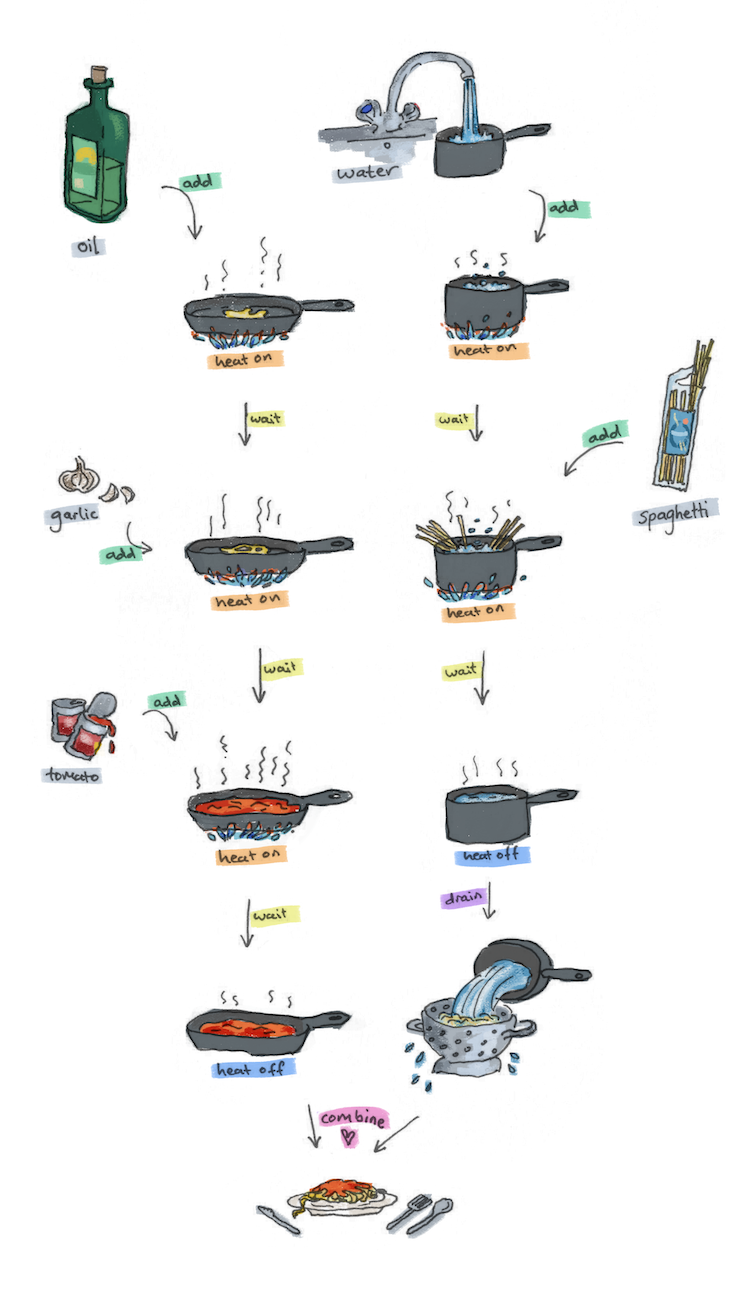
Scientific experiments look more serious and less fun than games. In reality, experiments and games both try to simulate phenomena, so they are based on the same principles.
There is a reason cooking takes years to master. A lot goes into making a delicious dish. Not only do you need to add the right ingredients and the right amount of each, the order in which you combine them also matters. When you teach a recipe to someone else, all these details needs to be communicated as well.
Chemicals and chemical reactions can be even more picky. Some compounds are quickly oxidized when exposed to oxygen in the air, for example, and some reactions only work within a precise temperature range. That’s why chemical procedures are often more detailed than cooking recipes. Thankfully, computers are very good at following instructions exactly; they do exactly what they are told, no more and no less.

Just like we can use programming languages to write code that precisely communicates our intentions to the computer, we can do the same thing for chemistry: write chemical programs that a robot (or a human who doesn’t know much about chemistry) can execute.
Many everyday situations require us to find a happy medium — turning the dials until everything is just right. Here is an example. Try seasoning a dish to perfection by finding the right amount of salt and pepper.
A lot of science and engineering is also about searching for the best parameters in a given a problem.